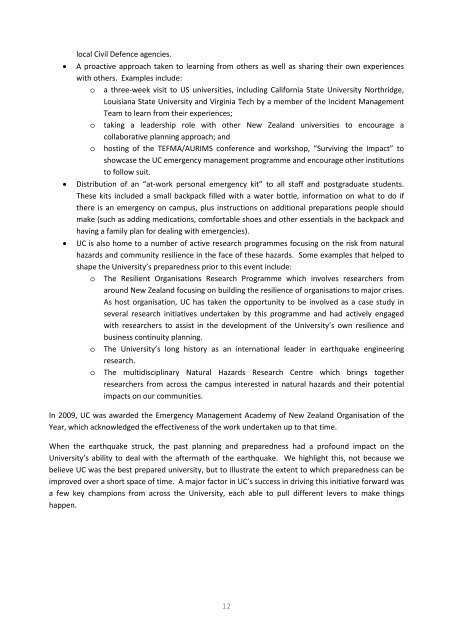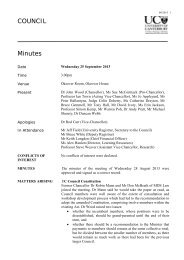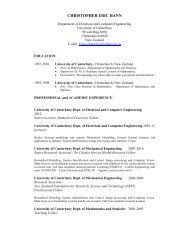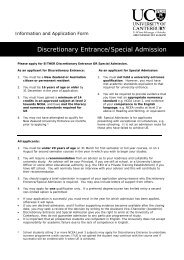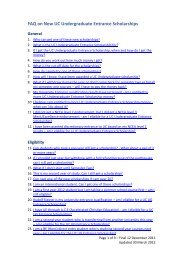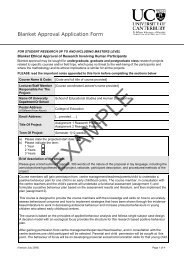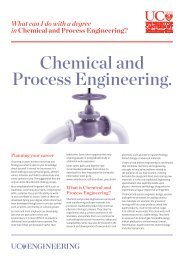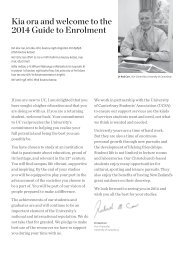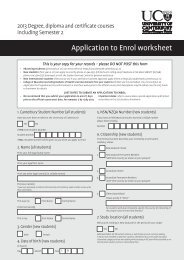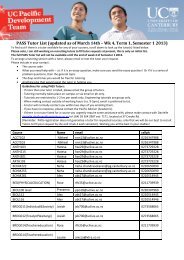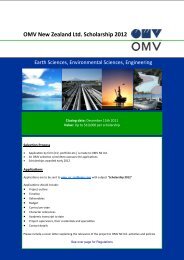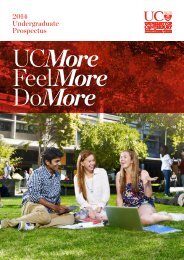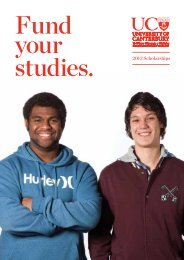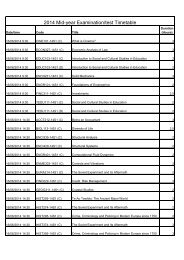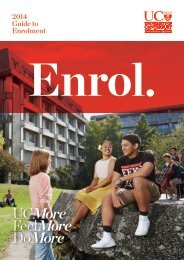Shaken but not Stirred - University of Canterbury
Shaken but not Stirred - University of Canterbury
Shaken but not Stirred - University of Canterbury
You also want an ePaper? Increase the reach of your titles
YUMPU automatically turns print PDFs into web optimized ePapers that Google loves.
local Civil Defence agencies.<br />
A proactive approach taken to learning from others as well as sharing their own experiences<br />
with others. Examples include:<br />
o a three-week visit to US universities, including California State <strong>University</strong> Northridge,<br />
Louisiana State <strong>University</strong> and Virginia Tech by a member <strong>of</strong> the Incident Management<br />
Team to learn from their experiences;<br />
o taking a leadership role with other New Zealand universities to encourage a<br />
collaborative planning approach; and<br />
o hosting <strong>of</strong> the TEFMA/AURIMS conference and workshop, “Surviving the Impact” to<br />
showcase the UC emergency management programme and encourage other institutions<br />
to follow suit.<br />
Distri<strong>but</strong>ion <strong>of</strong> an “at-work personal emergency kit” to all staff and postgraduate students.<br />
These kits included a small backpack filled with a water bottle, information on what to do if<br />
there is an emergency on campus, plus instructions on additional preparations people should<br />
make (such as adding medications, comfortable shoes and other essentials in the backpack and<br />
having a family plan for dealing with emergencies).<br />
UC is also home to a number <strong>of</strong> active research programmes focusing on the risk from natural<br />
hazards and community resilience in the face <strong>of</strong> these hazards. Some examples that helped to<br />
shape the <strong>University</strong>’s preparedness prior to this event include:<br />
o The Resilient Organisations Research Programme which involves researchers from<br />
around New Zealand focusing on building the resilience <strong>of</strong> organisations to major crises.<br />
As host organisation, UC has taken the opportunity to be involved as a case study in<br />
several research initiatives undertaken by this programme and had actively engaged<br />
with researchers to assist in the development <strong>of</strong> the <strong>University</strong>’s own resilience and<br />
business continuity planning.<br />
o The <strong>University</strong>’s long history as an international leader in earthquake engineering<br />
research.<br />
o The multidisciplinary Natural Hazards Research Centre which brings together<br />
researchers from across the campus interested in natural hazards and their potential<br />
impacts on our communities.<br />
In 2009, UC was awarded the Emergency Management Academy <strong>of</strong> New Zealand Organisation <strong>of</strong> the<br />
Year, which acknowledged the effectiveness <strong>of</strong> the work undertaken up to that time.<br />
When the earthquake struck, the past planning and preparedness had a pr<strong>of</strong>ound impact on the<br />
<strong>University</strong>’s ability to deal with the aftermath <strong>of</strong> the earthquake. We highlight this, <strong>not</strong> because we<br />
believe UC was the best prepared university, <strong>but</strong> to illustrate the extent to which preparedness can be<br />
improved over a short space <strong>of</strong> time. A major factor in UC’s success in driving this initiative forward was<br />
a few key champions from across the <strong>University</strong>, each able to pull different levers to make things<br />
happen.<br />
12


